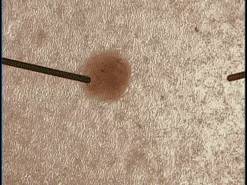Release date: 2016-12-26
Scientists from the McEwen Centre for Regenerative Medicine in Toronto, Canada, have made a groundbreaking discovery— by inducing human pluripotent stem cells, they use cells to form a “cardiac pacemaker†in vitro. And successfully stimulated heart beats in rat experiments. This groundbreaking study was also published in Nature, a biotechnology journal.

â–² McEwen scientists induced cardiac pacemaker cells (Source: statnews )
The heart is the most "labor" organ in the human body, and it never stops beating in people's life. The heartbeat is generated from a pacemaker cell in the heart called a sinus node, which spontaneously produces action potentials and conducts throughout the heart, causing the cardiomyocytes to contract regularly, resulting in a heartbeat. When these cells develop lesions, heart disease such as arrhythmia occurs .
The most effective means of treating such heart diseases at present is to implant a pacemaker to control the beating of the heart through artificially generated electrical pulses. There are about 500,000 manual pacemaker users in China, and this number is increasing rapidly. However, manual pacemakers also have many problems. The biggest problem is that it needs to generate electrical pulses through the battery. The average life of the battery is about 7 years. That is to say, the patient needs to undergo another operation every 7 years to replace the battery . In addition, for children, artificial pacemakers do not change with the growth of the heart, so it may be necessary to change the pacemaker more frequently.

Stem cell-based regenerative medicine is expected to solve this dilemma. Pluripotent stem cells have the potential to differentiate into more than 200 different types of cells that are part of many tissues and organs of the human body . Canadian scientists have used developmental biology to find and test signaling pathways from stem cell development to cardiac pacemaker cells and successfully established a method to convert stem cells into cardiac pacemaker cells within 21 days. When they developed pacemaker cells in the culture dish, it was further demonstrated that these cells can produce and regulate heartbeat in rats.
Source: WuXi PharmaTech
Tg Concentrates,Fish Oil 5/25 Tg,5/25 Tg Tg Concentrates,Fish Oil Omega-3
ZHOUSHAN SINOMEGA BIOTECH ENGINEERING CO.,LTD , https://www.sinomegabiotech.com